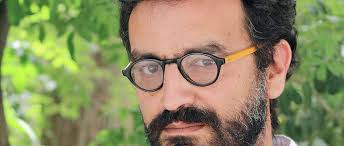The death in Algiers on Monday of the influential Lieutenant-general Ahmed Gaid Salah, Deputy Minister of National Defense and Chief of Staff of the National People’s Army (ANP), will not change much the army’s central role in the Algerian political landscape, indicates journalist and writer Adlene Meddi in this exclusive interview with APA.
APA: General Ahmed Gaïd Salah died just ten days after the election of his favorite candidate as Algeria’s president, would you say he has accomplished his mission before he died?
Adlene Meddi: Objectively speaking, he had drawn up a plan since the fall of Abdoulaziz Bouteflika, which is the return to “institutional order”. In this regard, he has done well. The second challenge he had was to maintain security in the country, which is experiencing massive protests for months, despite some incidents, there were no major slippages as we have seen in Iraq, where the army recently shot on people. So in that sense, you can say that he has successfully carried out his mission, objectively speaking.
APA: How do you envisage the post-Gaid Salah era?
Adlene Meddi: Gaid Salah was the leader of an army and in the military the first instruction is discipline and a very strong hierarchy. I sincerely believe that the General Staff will not do much alteration to position defined by Gaid Salah, which is that of backing the (new) elected President Abdelmadjid Tebboune and of maintaining the return to institutional normality. I don’t think this will change much, especially knowing Gaid Salah’s successor, General-Major Said Chengriha. It’s still Gaid Salah’s system through and through, as the two of them have known each other for a very long time. He is the head of the ground forces, a very sensitive sector in Algeria. So, I think there will be some continuity, whether in politics or strategy.
APA: Can we expect Gaid Salah’s successor to have the same influence on the Algerian political system?
Adlene Meddi: It’s not very easy to talk about the role of the military in political life. The army intervened in 1992 and 1999, and recently for good causes because in front of it, there was a collapse of the civilian institutional order, which is not mature enough due to lack of democracy, transparency and respect for institutional authority. So the army is plugging the gaps, but its role is to act in situations of emergency, and its own emergency is to return to the barracks because it is very disturbing for them to engage in politics, while the security, military and terrorist challenges facing Algeria are huge. I think the military themselves perceive it like that. However, we are still in a delicate situation, we have citizens who are still demonstrating in Algiers and we have an opposition, which has failed to clearly outline its vision for the country’s future. We have also witnessed attempts at destabilisation that are not about crying wolf. So, as long as these challenges are there, the military will always be deployed on the “political” field.
The central role played by the army in the Algerian political system cannot change. You know, we have established our army and our secret services before creating our own state. We had the army before we had institutions, so it’s kind of the DNA of the Algerian system if you like.
This is a problem, because civil institutions have failed to grow and become true democratic and representative institutions. And that’s a big problem. As long as we cannot establish true democracy, we will leave the door open for the military, especially since they have to intervene.
The job of the military is to protect and ensure that the Algerian state does not collapse. This is not power per se. It’s just that we need to find a balance act: strong democratic institutions and an army that only deals with military matters.
Dng/cat/fss/as/APA


